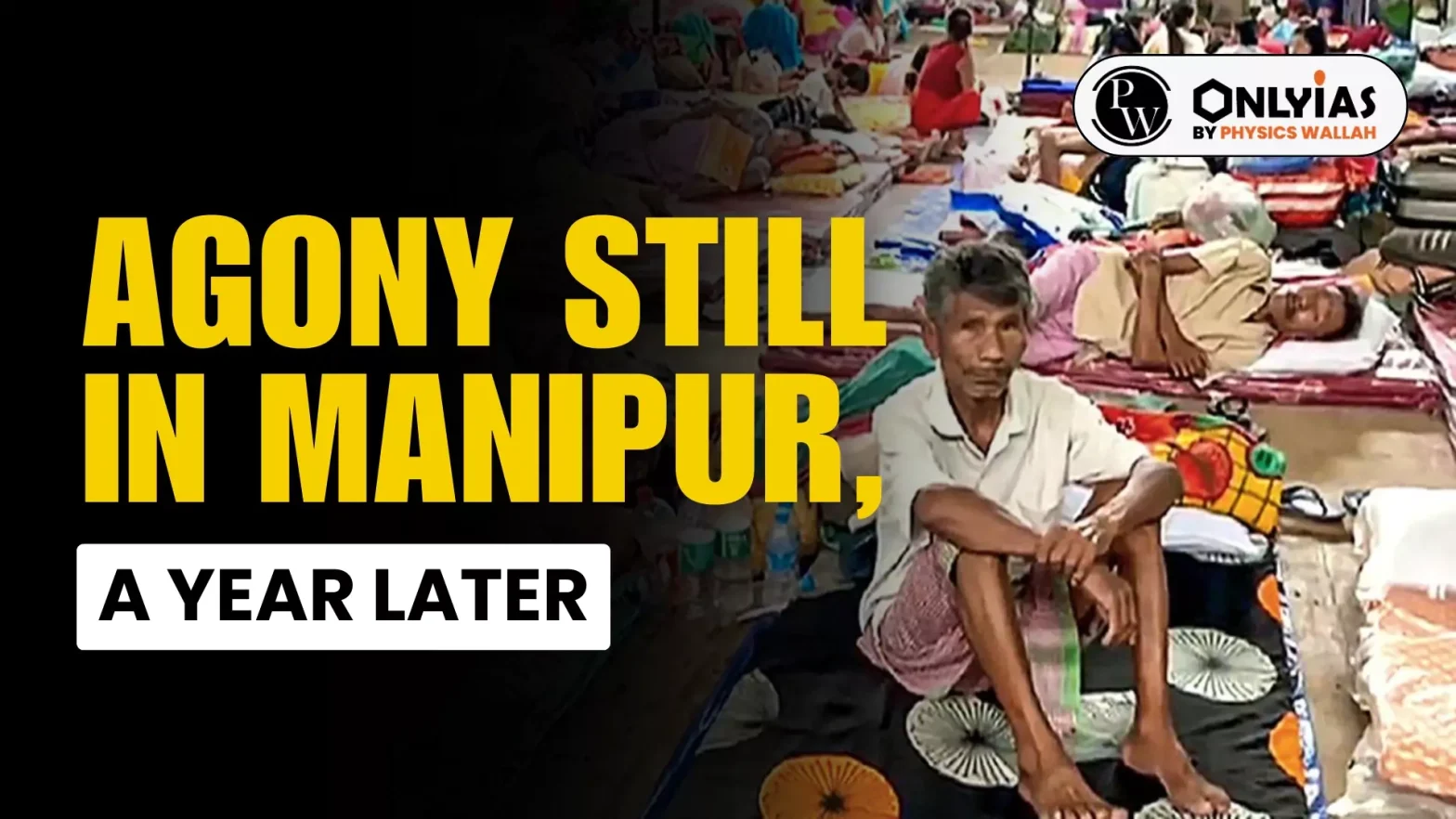The high-level security meet on Manipur convened by the Union Home Minister, Amit Shah, was loudly conspicuous by its exclusion of the Manipur Chief Minister, N. Biren Singh.
Agony Still In Manipur
It also threw light on the way the Centre has been handling the violent ethnic clashes in Manipur between two of its major communities, the Meitei and Kuki-Zo tribes.
- There seem to be no signs of respite even after a year of bloodletting. It seems to confirm the long-held suspicion that there has been undeclared President’s Rule in the State, with the Manipur government having been placed in virtual animated suspension.
Enroll now for UPSC Online Course
Article 365 in The Constitution Of India 1949
- Effect of failure to comply with, or to give effect to, directions given by the Union Where any State has failed to comply with or to give effect to any directions given in the exercise of the executive power of the Union under any directions given in the exercise of the executive power of the Union under any of the provisions of this Constitution, it shall be lawful for the President to hold that a situation has arisen in which the government of the State cannot be carried on in accordance with the provisions of o Constitution.
|
- Those invited for the meeting included Indian Army Chief Manoj Pande, Army Chief- designate Lieutenant General Upendra Dwivedi, Union Home Secretary Ajay Kumar Bhalla and Intelligence Bureau director Tapan Kumar Deka.
- From the State were the Director General of Police Manipur, Rajiv Singh, and the Security Adviser, Kuldeip Singh – both brought in from outside the State and appointed to these posts in the wake of the outbreak of violence on May 3, 2023.
- As a media columnist pointed, also conspicuously absent were officers from Manipur’s stakeholder communities.
- Considering that this meeting had quickly followed another one Mr. Shah had had in New Delhi with the Manipur Governor, Anusuiya Uikey, speculations were rife that this was a prelude to a formal invocation of Article 365 to impose a spell of President’s Rule in the State.
- This anticipation, however, proved premature, as it is now clear that the meeting merely chalked out a strategy to contain the violence so that a dialogue process between the two warring communities can be initiated.
The Messaging About the State Government
Not long after the ethnic violence broke out, it had become clear that the State government was no longer in charge.
- First, there was a viral news that Article 355 had been imposed in the State, passing on the State government’s responsibility of law-and-order upkeep to the Centre.
- This was later officially denied.
- Still, from the patterns of security deployments and operations henceforth, it was more than apparent that the State government had been almost sidelined.
- It was probably unintentional, but in noisy cross- questioning in the Lok Sabha on August 9, 2023, during the no-confidence motion faced by the then National Democratic Alliance government, Mr. Shah when asked why the Manipur Chief Minister had still not been removed, again gave a glimpse of ‘this unofficial Central rule’.
- In a Freudian slip, he said that there was no need for this as the Chief Minister was “cooperating” with the Centre.
- Earlier, when Mr. Shah made his first trip to Manipur on May 29, 2023, after a fortnight of lull punctuating the outbreak of mayhem in the State, violence again exploded in several places along the foothills.
- Mr. Shah made another declaration.
- There was to be a buffer zone along the foothills where the Imphal valley meets the surrounding hills.
- And, the hills were to be looked after by central forces while the State police were for the valley.
- This may have been well-intentioned, but it proved to be ill-conceived.
- Probably, the assumption was that separating the warring communities would freeze the feud, and that normalcy would return.
- But when the conflict dragged on longer than anticipated, several unanticipated consequences became obvious.
- For one, the Meiteis, now confined in the valley, began to suspect the central forces, especially the Assam Rifles, of siding with the Kuki-Zos in the hills.
- And, conversely, the Kuki-Zos began viewing the State police as partisan to the Meiteis.
Check Out UPSC CSE Books From PW Store
Conclusion
The Centre’s handling of Manipur’s ethnic clashes, sidelining the State government, has led to prolonged violence, highlighting the need for deeper conflict resolution strategies.
![]() 26 Jun 2024
26 Jun 2024

